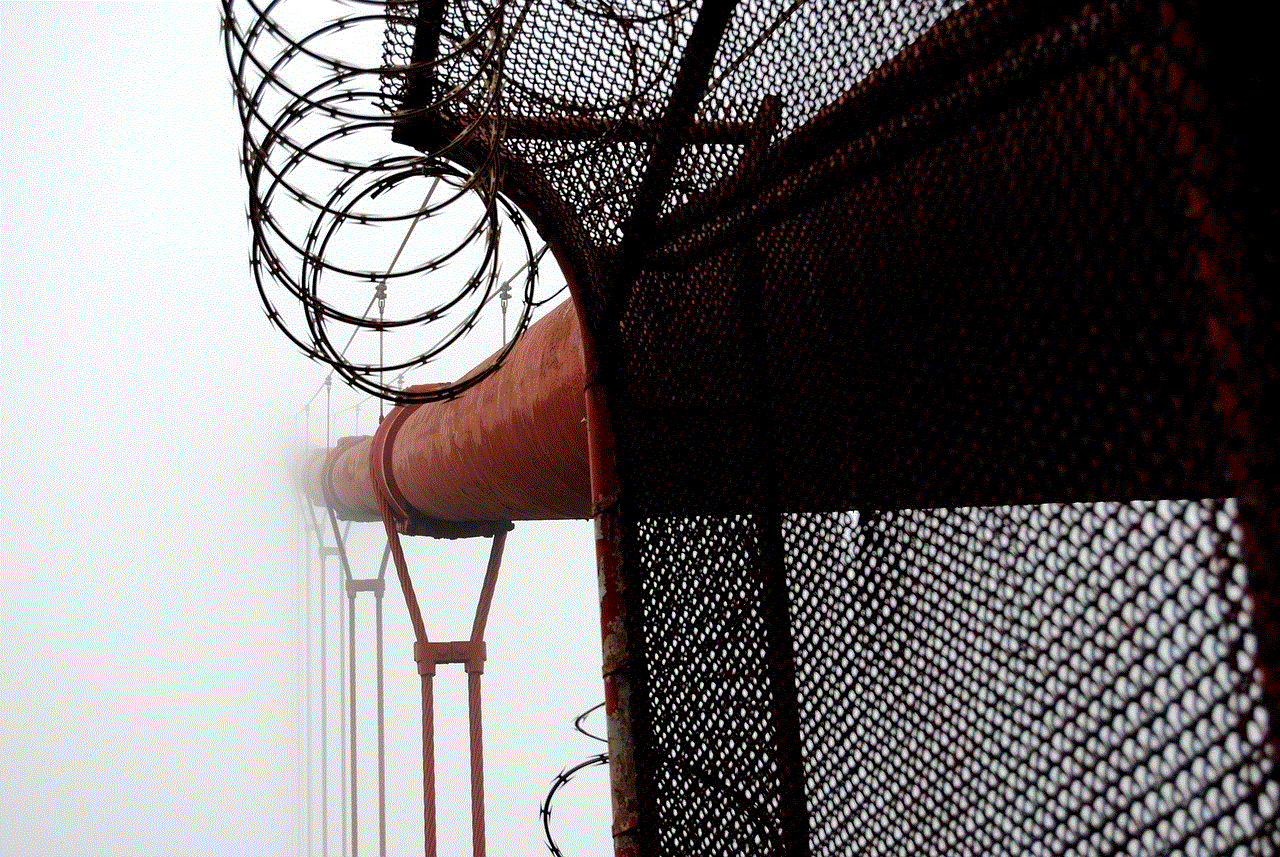tracker detector app
With the rise of technology and the increasing prevalence of smartphones, apps have become an integral part of our daily lives. From ordering food to managing finances, there seems to be an app for almost everything. One emerging category of apps is the tracker detector app, which has gained popularity in recent years. These apps are designed to help users track and locate lost or stolen devices, as well as to protect their privacy by detecting any tracking tools that may be used on them.
In this article, we will delve into the world of tracker detector apps, exploring their features, benefits, and limitations. We will also discuss the different types of tracking tools that these apps can detect, and how they work. So, if you want to know more about this innovative technology and how it can help you, keep reading.
What is a Tracker Detector App?
A tracker detector app is a mobile application that is designed to detect and locate any tracking tools that may be used on a device. These tools can include GPS trackers, hidden cameras, and even software that tracks your online activities. Some tracker detector apps also have the ability to locate lost or stolen devices, making them a valuable asset for anyone concerned about their privacy and security.
One of the main reasons for the increasing popularity of tracker detector apps is the growing concern over privacy invasion. With the advancements in technology, it has become easier for individuals and companies to track and monitor our activities. From advertisers tracking our online behavior to hackers trying to gain access to our personal information, the need for privacy and security has never been greater. This is where tracker detector apps come in, providing users with a way to protect themselves and their devices from unwanted tracking.
How do Tracker Detector Apps Work?
Tracker detector apps use advanced technology to scan for any tracking tools that may be present on a device. These tools can include hardware devices like GPS trackers and hidden cameras, as well as software applications that track online activities. The app uses various techniques, such as scanning for Bluetooth signals and analyzing network traffic, to detect any tracking tools that may be present.
Once a tracking tool is detected, the app will provide the user with information about the type of tool and its location, if available. Some apps also offer the option to disable or remove the tracking tool, providing users with an added layer of protection. Additionally, some tracker detector apps can also locate lost or stolen devices by using GPS tracking or other methods.
Types of Tracking Tools Detected by Tracker Detector Apps
As mentioned earlier, tracker detector apps can detect a variety of tracking tools, both hardware and software. Let’s take a look at some of the most common types of tracking tools that these apps can detect.
1. GPS Trackers – These are small devices that use GPS technology to track the location of a person or object. They are commonly used for tracking vehicles, pets, and even children. GPS trackers are often used by parents to keep an eye on their children’s whereabouts, but they can also be used for more nefarious purposes, such as stalking or spying.
2. Hidden Cameras – These are small, discreet cameras that are used to capture video footage without the knowledge of the person being recorded. They can be hidden in objects such as clocks, pens, or even clothing. Hidden cameras are often used for surveillance, but they can also be used for invasion of privacy.
3. Keyloggers – These are software programs that track and record every keystroke made on a device, including passwords and sensitive information. Keyloggers are often used by hackers to steal personal information, such as credit card numbers and login credentials.
4. Ad Trackers – These are software programs that track your online behavior and collect data about your browsing habits. Ad trackers are used by advertisers to target specific ads to individual users, but they can also be used to gather personal information without your consent.
5. Malware – Malware, short for malicious software, is a type of software designed to disrupt, damage, or gain unauthorized access to a computer system. Malware can include viruses, spyware, and Trojan horses, and can be used to track your online activities or steal your personal information.
Benefits of Using a Tracker Detector App
1. Protects Privacy – One of the main benefits of using a tracker detector app is that it helps protect your privacy by detecting and disabling any tracking tools that may be present on your device. This is especially important for those who are concerned about their online privacy and security.
2. Locates Lost or Stolen Devices – Many tracker detector apps also have the ability to locate lost or stolen devices, making them a valuable asset for anyone who has lost their phone or had it stolen. This feature can save you time, money, and stress by helping you recover your device quickly.



3. Easy to Use – Most tracker detector apps are user-friendly and easy to use, making them accessible to people of all ages and technical abilities. They usually have a simple interface and require minimal setup, making them a convenient tool for protecting your privacy.
4. Customizable Settings – Many tracker detector apps allow users to customize their settings, giving them control over what types of tracking tools they want to be notified about. This allows users to tailor the app to their specific needs and preferences.
Limitations of Tracker Detector Apps
While tracker detector apps have many benefits, they also have some limitations that users should be aware of.
1. Not 100% Effective – While these apps are designed to detect and disable tracking tools, they are not 100% effective. Some tracking tools can be difficult to detect, and it is possible for new tools to be developed that these apps may not be able to detect.
2. Limited to Mobile Devices – Most tracker detector apps are designed for mobile devices, which means they cannot be used to protect other devices, such as computers or smart home devices.
3. Requires Regular Updates – As new tracking tools are developed, tracker detector apps need to be updated regularly to keep up with the latest threats. This means users need to regularly check for updates to ensure they are fully protected.
4. May Drain Battery – Some tracker detector apps can be resource-intensive and may drain your device’s battery faster than usual. This can be problematic for those who need their phone to last all day without charging.
Conclusion
In conclusion, tracker detector apps are an invaluable tool for protecting your privacy and security. They can detect a variety of tracking tools, both hardware and software, and can also locate lost or stolen devices. While they have some limitations, the benefits of using a tracker detector app far outweigh any potential drawbacks. So, if you want to protect your privacy and ensure your personal information is safe, consider downloading a tracker detector app today.
stop sharing location



In today’s digital age, privacy has become a major concern for many individuals. With the increasing use of technology and social media platforms, it has become easier for people to track our movements and monitor our whereabouts. One such feature that has raised concerns about privacy is the ability to share our location with others. While it can be useful in certain situations, it can also pose a threat to our safety and security. As a result, the need to stop sharing our location has become a pressing issue. In this article, we will delve deeper into the reasons why individuals should consider stopping location sharing and how to go about it.
To begin with, let us understand what location sharing is and how it works. Location sharing is a feature that allows us to share our real-time location with others through various apps and services. It uses the GPS technology on our phones to pinpoint our exact location and share it with others. This feature is often used for navigation purposes, finding nearby places, and keeping track of loved ones. While it may seem harmless, there are several reasons why individuals should consider stopping location sharing.
First and foremost, sharing our location can compromise our privacy and security. With location sharing, anyone with access to our location can track our movements and know our exact whereabouts. This can be a major concern for individuals who are being stalked or harassed. Moreover, it can also make us vulnerable to theft and burglary as criminals can use this information to target our homes when we are away. Additionally, location sharing can also expose sensitive information, such as our daily routines and habits, which can be exploited by cybercriminals.
Another reason to stop sharing our location is to avoid being constantly monitored and tracked. In today’s world, where everyone is connected through social media, it has become the norm to share our every move and activity. However, this constant monitoring can be exhausting and can make us feel like we are under constant surveillance. It can also lead to unnecessary pressure to constantly update our whereabouts, which can be a burden. By stopping location sharing, we can have a sense of freedom and privacy in our daily lives.
Furthermore, location sharing can also lead to misunderstandings and conflicts in relationships. For instance, if we are unable to respond to a text or call immediately, the other person may feel anxious or suspicious, leading to unnecessary arguments. Similarly, if we are unable to attend an event or gathering, the host may feel offended if they know our location and assume that we are lying. By not sharing our location, we can avoid such misunderstandings and maintain healthy relationships.
Moreover, location sharing can also have a negative impact on our mental well-being. With constant updates about where our friends and family are, it can make us feel left out and trigger feelings of FOMO (fear of missing out). It can also lead to comparison and feelings of inadequacy if we see others having a seemingly better time than us. By not sharing our location, we can focus on our own lives and not get affected by the virtual lives of others.
Now that we have established the reasons why individuals should stop sharing their location, let us look at how to go about it. The first step is to review the apps and services that have access to our location. This can be done through the settings on our phones. We should then assess if these apps really need access to our location and if not, we should revoke their access. It is also important to regularly review and update the location sharing settings on our social media accounts to ensure that we are not unknowingly sharing our location.
Next, we should also be mindful of who we share our location with. It is not necessary to share our location with everyone on our contact list. We should only share our location with close friends and family members who we trust. It is important to establish boundaries and communicate our decision to stop sharing our location with others to avoid any misunderstandings.
In addition, we can also use fake locations or turn off location services when we do not want to share our real-time location. This can be useful when we are attending events or gatherings where we do not want everyone to know our exact location. There are also apps available that can help us fake our location or provide a general area instead of our precise location.



Lastly, it is important to be aware of the dangers of oversharing. We should be cautious about sharing too much information, including our location, on social media platforms. We should also educate our children and younger family members about the risks of location sharing and the importance of maintaining privacy.
In conclusion, while location sharing can be useful in certain situations, it is important to be mindful of the risks it poses and the impact it can have on our lives. By stopping location sharing, we can protect our privacy, avoid unnecessary conflicts, and focus on our mental well-being. It is crucial to take the necessary measures to stop sharing our location and be responsible for our online presence. Remember, it is always better to be safe than sorry.